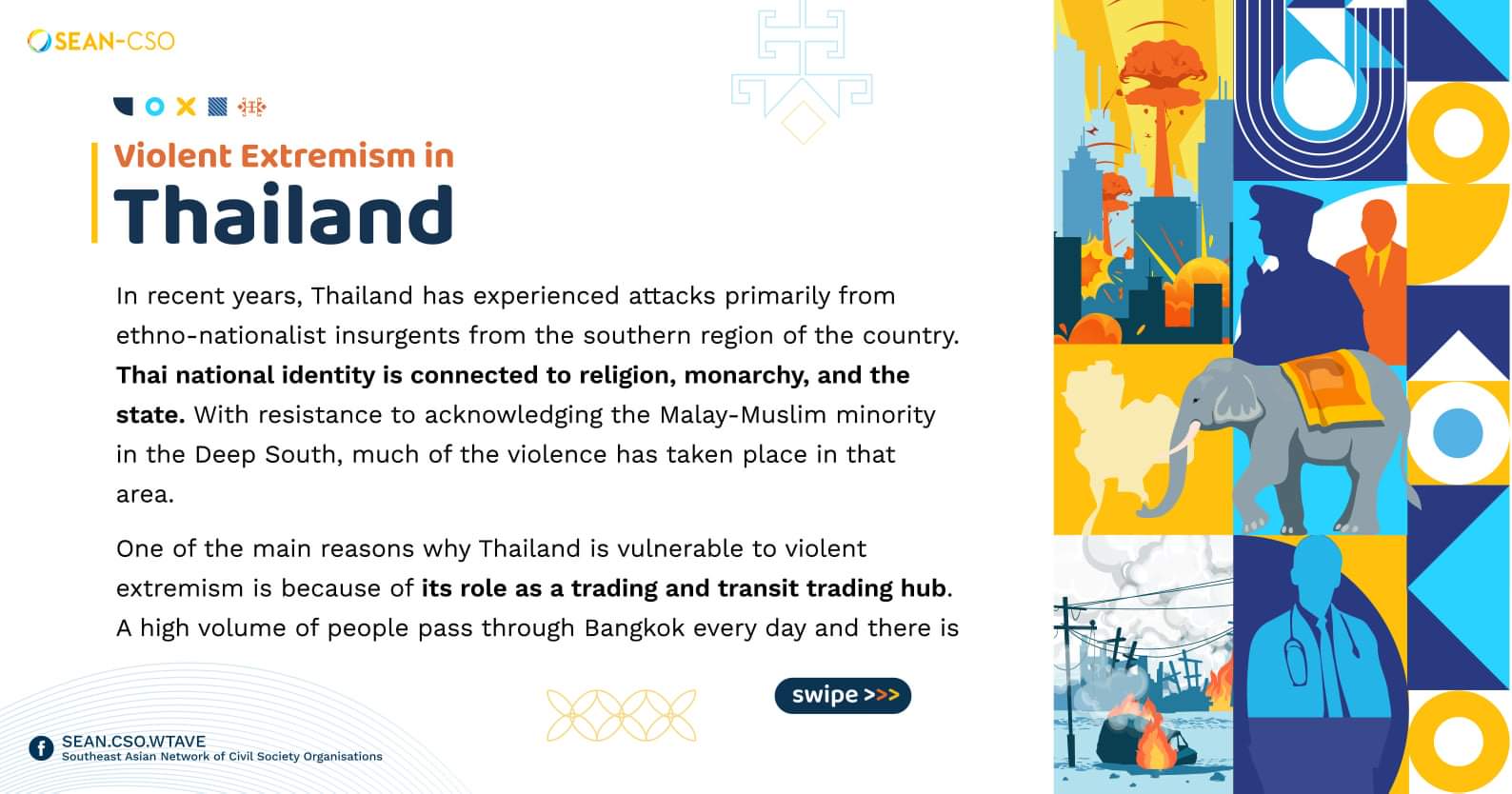In recent years, Thailand has experienced attacks primarily from ethno-nationalist insurgents from the southern region of the country. Thai national identity is connected to religion, monarchy, and the state. With resistance to acknowledging the Malay-Muslim minority in the Deep South, much of the violence has taken place in that area.
One of the main reasons why Thailand is vulnerable to violent extremism is because of its role as a trading and transit trading hub. A high volume of people pass through Bangkok every day and there is a large market of illegal goods. Did you know? Thailand is currently ranked #18 on the Global Terrorism Index.
Groups such as al-Qaeda, Jemaah Islamiyah (JI), and Hezbollah have conducted operations out of Thailand. It is believed that JI planned the 2002 Bali bombings out of safe houses in Bangkok.
- Yala Province Attack, 2019
On November 5, 15 people were killed and 4 were wounded by attackers at a checkpoint in the district of Tha Muang. Explosives were used and nails were left on nearby roads to slow down pursuers. The victims included the present and former assistant village and sub-district heads, a health official, and a police captain.
No group claimed responsibility for the attack, but it was later attributed to the Barisan Revolusi Nasional separatist group. Over the years, the separatist movement in Thailand has killed thousands of people, but the Yala attack was the country’s biggest single attack in over a decade.
- Bangkok Bombings, 2019
On August 2, 2019, a series of bombs exploded at 5 locations in Bangkok.
- Chong Nonsi BTS Station
- King Power Mahanakhon tower
- Chaengwattana Government Complex
- Royal Thai Armed Forces Headquarters
- Miniso (store inside Siam Square One)
At the time, over 30 foreign ministers were in the city for the ASEAN Foreign Ministers’ Meeting (AMM). 4 people were wounded, but no one was killed. Once again, no group claimed official responsibility, but many experts believe it to be the work of separatists from the south.
- Other Recent Attacks
- January 8, 2019. A retired Buddhist teacher was lynched. His truck was stolen and an improvised explosive device (IED) was attached which later wounded two soldiers.
- January 10, 2019. 4 paramilitary volunteers assisting the Royal Thai police were shot in Pattani Province.
- January 18, 2019. 2 Buddhist monks were killed in Narathiwat Province. Two months prior, three imams had been killed in the same area.
- March 9-10, 2019. Pipe bombs were detonated in the southern provinces of Satun and Phatthalung.
- May 26, 2019. Bomb attack at a railway station in Songkhla Province.
- May 27, 2019. Motorcycle bomb exploded at a flea market in Pattani Province.
Sources:
- “State of Violence: Government Responses to Violent Extremism in South-East Asia.” UNDP. 2020.
- “Country Reports on Terrorism 2019: Thailand.” US Department of State. June 24, 2020.
- Pathan, Muhammad Ayub and Benjakat, Abdullah. “Insurgents attack security checkpoint in Yala, 15 killed.” Bangkok Post. November 6, 2019.
- “Thailand: Extremism and Terrorism.” Counter Extremism Project.
- Thepgumpanat, Panarat. “Bangkok bombings may be linked to politics: police.” Reuters. August 8, 2019.
- “Jihadism in Southern Thailand: A Phantom Menace.” International Crisis Group. November 8, 2017.

